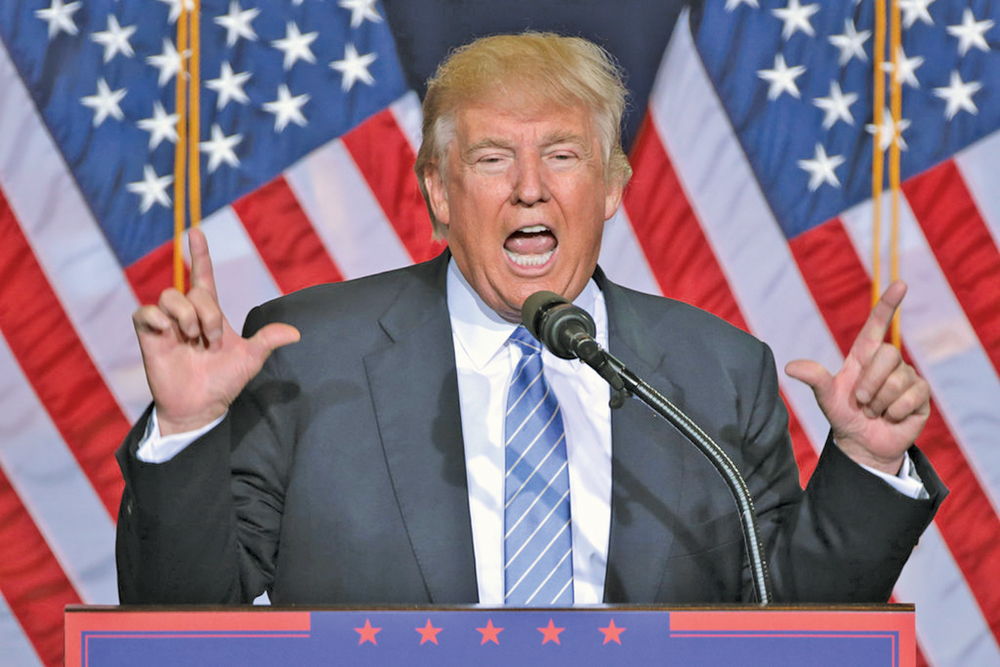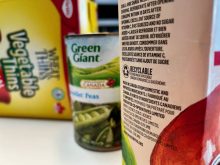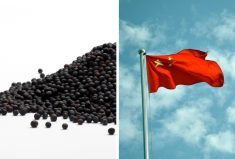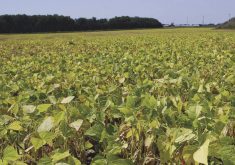Canada’s trade-dependent economy, including agriculture, could be collateral damage in Donald Trump’s battle to make America great again.
The president-elect says he’ll pull out of the North American Free Trade Agreement (NAFTA) if it can’t be renegotiated to give the U.S. a better deal. He also says he won’t ratify the Trans-Pacific Partnership (TPP), which would almost assuredly kill the trade agreement that would encompass 40 per cent of the world’s economy.
But agriculture and trade representatives on both sides of the border believe Trump’s protectionist bark is worse than his bite.
Read Also

Canadian Cattle Association names Brocklebank CEO
Andrea Brocklebank will take over as chief executive officer of the Canadian Cattle Association effective March 1.
Before being elected president both Barack Obama and Bill Clinton criticized NAFTA too.
“I wouldn’t hit the panic button just yet,” Cereals Canada president Cam Dahl said in an interview Nov. 9, the day after Trump surprised most of the world by beating Hillary Clinton.
- Read more: World continues to digest Trump win
“Both of our countries have substantially grown around that agreement and it goes well beyond agriculture. I simply can’t imagine Canada and the U.S. without free-flowing trade.”
But during the first presidential debate Sept. 29, Trump said NAFTA “is the worst trade deal maybe ever signed anywhere, but certainly ever signed in this country (U.S.).”
The trilateral accord signed by Canada, the United States and Mexico, which came into effect Jan. 1, 1994, saw trade, as measured by the total of each country’s imports from its other two NAFTA partners, exceed $1 trillion (U.S.) in 2015. That’s more than a threefold increase since 1993, according to a Canadian government website. Canada-U.S. trade in goods and services alone reached close to $881 billion last year.
“Canada is the second-largest market for U.S. services and exports with Canada-U.S. services trade nearly reaching over $122.8 billion in 2015, a 205 per cent increase since 1993,” the site says. “The United States was the No. 1 destination for Canadian merchandise exports in 2015, and was Canada’s largest supplier of merchandise imports. Canada is the main foreign supplier of energy to United States (Mexico is fourth), and was the largest cumulative source of foreign direct investment into the United States.”
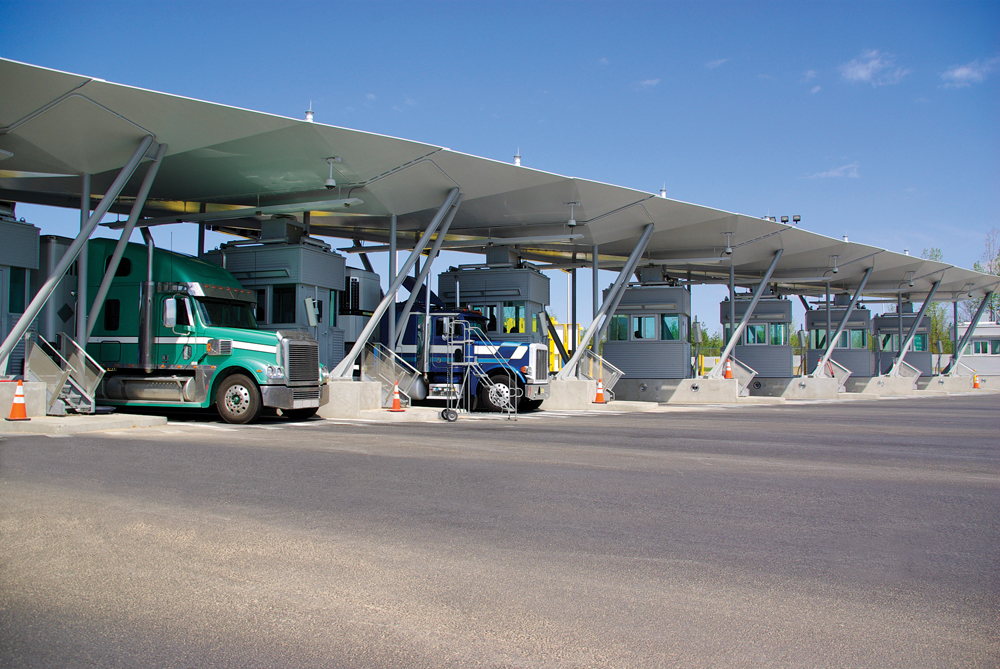
Presidential candidates change positions once elected, Joseph Glauber, a former chief economist with the United States Department of Agriculture and now with the International Food Policy Research Institute in Washington, D.C., said in an email Nov. 9.
“I think the possibility is zero that there would be any move to backtrack on trade deals like NAFTA,” he wrote. “Already the (American) Farm Bureau is asking to meet with the president-elect and push for TPP. The next few months will certainly be interesting but I would be very surprised if we see any change in current trade agreements.”
In the unlikely case that the U.S. abrogated NAFTA, the Canada-U.S. Free Trade Agreement, which came into force Jan. 1, 1989, would carry on, said Ottawa-based trade consultant Peter Clark of Grey, Clark, Shih and Associates.
It might be a bit clunky — like going from a smartphone back to a flip phone, said John Masswohl, the Canadian Cattlemen’s Association’s director of government and international relations. “It wouldn’t be ideal, but you could make a phone call.”
World Trade Organization (WTO) rules would still also apply, Clark said. Canada successfully overturned the U.S.’s protectionist country-of-origin labelling law for meat through the WTO.
U.S. farm groups, with a politically conservative membership, want Trump to know how vital exports are for farmers, Chuck Abbott wrote for the online publication Ag Insider.
Groups speaking for U.S. corn and soybean farmers urged Congress to pass TPP during the post-election session opening next week, the story said.
“Campaign rhetoric has set America’s trade agenda back years. Let’s take a big step back in the right direction and pass TPP,” Ag Insider quoted John Spurlock, president of the National Corn Growers Association, as saying.
Twenty cents of every $1 in net U.S. farm income is generated by agricultural exports.
China, Canada and Mexico are the top three markets for U.S. farm exports. The U.S. is Canada’s No. 1 customer for agricultural goods.
Ron Bonnett, president of the Canadian Federation of Agriculture, said his organization will be reaching out to American farm groups to rally support for trade.
“We have worked through some of these trade skirmishes before and the industry will likely unite and say, ‘be careful where you step here because this has actually worked well for both sides,’” Bonnett said.
If Trump pulls out of NAFTA — something that requires six months’ notice — it would hurt the U.S., Masswohl said.
“Hundreds of thousands, if not millions, of Americans owe their jobs to trade — particularly trade with Canada — and they can only come up to that one logical conclusion, that is, campaign rhetoric is not good policy for the United States,” he said.
“I think people should just take a breath, calm down.”
In the meantime, staff at Canada’s embassy and consulates across the U.S. will be reminding U.S. leaders about the importance of trade agreement with Canada, he said.
North America’s cattle-breeding, feeding and processing industries are already integrated, Masswohl said. When a load of Canadian cattle enters the U.S. it’s sustaining jobs in either feedlots or packing plants, he said. The same applies when U.S. cattle come north.
While all those interviewed feel NAFTA is safe, they agree TPP — the 12-country agreement, isn’t, even though most American farm groups, like their Canadian counterparts, support it.
To enter into force, six of the 12 TPP countries need to ratify the deal. They must account for at least 85 per cent of the Gross Domestic Product of the original 12 participating countries. The U.S. alone represents nearly 62 per cent of TPP GDP. And Trump has said he won’t ratify it.
“If the TPP is not going to proceed our position will be to strongly encourage the Canadian government to secure some bilaterals starting specifically with Japan,” Dahl said, adding that Australia already has such an agreement.
If the U.S. pulls out of TPP it will leave a big hole, said Brian Innes, the Canola Council of Canada’s vice-president, government relations.
“We’ll see a major need for Canada to be more assertive and more aggressive on the international scene if the U.S. pulls back from its leadership role in promoting rules-based more liberal trade,” he said.
Prime Minister Justin Trudeau said he is willing to discuss NAFTA with Trump.
Trudeau also said Canada will continue plans to price carbon, even though Trump has vowed to pull out of the Paris accord on climate change.
Critics, including Conservative opposition leader Rona Ambrose, say a carbon price will make Canadian farmers and other businesses uncompetitive.
Keystone Agriculture Producers president Dan Mazier said with or without carbon pricing the federal government needs to help farmers adjust to increasing erratic weather.
“The only way we have right now is through a better risk management program,” Mazier said. “That is an old tool for a new problem.”




